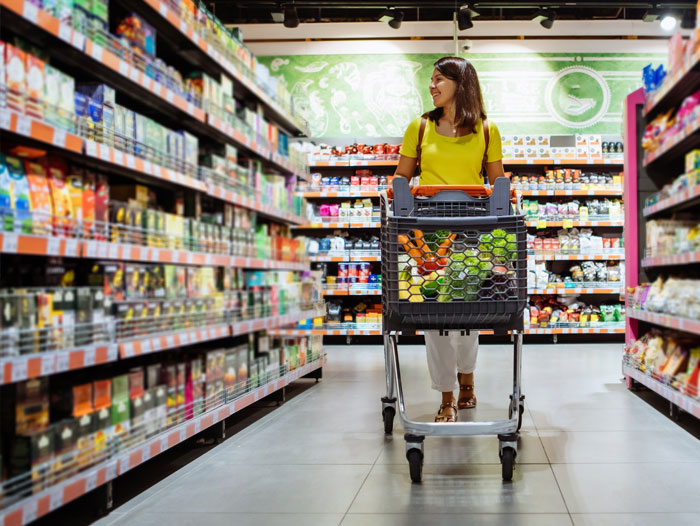Inflationary Pressures & Supply Chain Issues Challenge Retail Food Sales
June 1, 2022 | 4 min to read

ROCKVILLE MD – Food retail sales spiked significantly in 2020 (+14% from 2019 levels) due to the impact of the coronavirus and while growth fell off sharply in 2021, it continued. In 2022, sales will be challenged by shifts in consumer behavior in light of rising prices, continued trends in out-of-stock products, and increased dining outside the home. Still, opportunities exist for food products that address sustainability issues, are plant-forward and convenient, feature better-for-you formulations and functional ingredients, and ultimately taste good according to the update of Packaged Facts’ benchmark coverage of retail food sales in U.S. Food Market Outlook 2022: Inflation, Supply Chains, Food Trends & the Effects on Home Cooking & Grocery Shopping.
The sharply increased home cooking trend of 2020 and 2021, which drove elevated demand for food in the retail sector, is easing. While some consumers are continuing to prepare more of their meals from home than they did before the COVID-19 pandemic hit, more consumers are returning to pre-pandemic normal out-of-home activities and shifting more of their food consumption back to foodservice establishments.
However, supply chain challenges persist and, in some cases, are increasing. Certain types of packaging and ingredients are available in insufficient supplies and retailers have to wait longer or pay more for deliveries. Inflation-fueled higher prices are another core trend in 2022, as supply challenges and rising labor costs combine to test suppliers, retailers, and consumers.
With a focus on growth opportunities and “what’s next” – along with bringing decades of food and beverage market perspective and analysis to the table – U.S. Food Market Outlook 2022: Inflation, Supply Chains, Food Trends & the Effects on Home Cooking & Grocery Shopping is packed with actionable insights about consumer trends, behavior, and motivations. This report delivers predictions and recommendations designed to guide retailers, service providers, wholesalers, food processors, packaging firms, and investors in making business decisions about the food market.
Actionable insights are available as this report considers COVID-related behaviors in the pandemic and beyond. Marketers will be challenged over the next few years to sustain growth after record-setting sales in 2020 and continued elevated level in 2021.
Headwinds to overcome and innovate through 2022 include the resurgence of out-of-home consumption, continuing supply challenges, and the mostly mature nature and slow growth of most food categories. Rapid increases in food prices — inflationary pressures from factors such as the high cost of transport, insufficient levels of key ingredients and packaging elements, and labor shortages — may limit volume sales to a degree, but they will aid retail growth in value terms. The degree to which prices continue to rise and consumers shift food buying away from what they typical bought to more affordable options will weigh on the industry. The ongoing development of the Omicron variant and the threat of future variants, plus a stall in vaccination rates and concern about the need for additional booster doses complicates sales projections for 2022 and beyond.
Packaged Facts, a division of MarketResearch.com, publishes market intelligence on a wide range of consumer market topics, including consumer demographics and shopper insights, the food and beverage market, consumer financial products and services, consumer goods and retailing, and pet products and services. Packaged Facts also offers a full range of custom research services. Reports can be purchased at our company website and are also available through MarketResearch.com.
